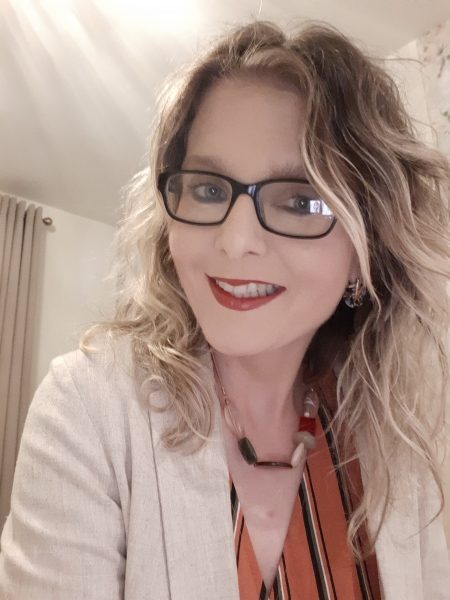This week we’re celebrating the amazing parents in our community who are raising children with additional needs by sharing their relationship stories and advice! Today’s blog is a chat with Alison Wombell. Alison is the ASD Lead for Families First North East as well as the Founder of Autism Superstars. She supports families before, during and after assessment and diagnosis of any neurodevelopmental disorder, as well as delivering training to parents and professionals. Alison is also a Mum of 2.
Q: What do you think are the ingredients for a strong couple relationship when you’ve got a child with additional needs?
A: Equal understanding. If one parent is the main carer and they’re going on all of the workshops, they’re going on all of the courses, and they’re going to everything that is out there for them to help their child, then they need to feed back to the other parent that might be at work or has got something else on. I think it’s important that the other parent understands that they should listen and I think it’s about give and take and learning. To listen, to understand, to be aware about what that other parents has heard and learned that day, so that they can take it on board. I think that you’re in a relationship because you tend to generally love each other and care about each other and I think that it’s important to appreciate each other, because you’re both doing an equal job, regardless of going to work, being a carer. You’re both equal and it is stressful, it is very, very stressful to be in a relationship when you’ve got a child with additional needs, I’m not going to say that it’s not, but… I think it’s remembering that actually, “we’re in this together, we’ve got this child together, it might be that we have to look after them for the rest of their life, but we’ll do it together, because we love each other, we care about each other, we support each other and we understand each other”. And listening to each other.

Q: Where you’ve seen relationships that share out the responsibility and the understanding of the child what impact do you think that has on the child?
A: If you’re in a relationship where you’re listening to each other and you love one another and you’re supporting and you’re understanding, the child will pick up on every positive vibe. Children pick up on negative vibes probably more frequently than they do the positive ones, but if you are positive more often than you are negative, the child will pick up on that and it makes the child a happier child. So when that child is going into school and they’ve had a nice morning, they might have had a meltdown, but they had equal support from both parents, so it’s a lot easier for that transition into school, because they’ve got good support at home. There’s no arguments before they get there, there’s no conflict, there’s no issues arising. Even children that are non-verbal, children who are in wheelchairs, children who are really complex, they pick up on a lot of stuff and I think that if we keep that smile on our face, even if we’ve got a lot of issues going on, it makes a difference to that child. I think that it’s just important to be able to talk. Not all talk is going to be positive and wonderful, but just keeping things open. Obviously you don’t want to talk about the proper relationship stuff to your kids, but if children see that you’re talking to each other as a couple, in a nice way, they’ll pick up on that. I can’t stress enough, how children pick up on everything and it’s about being open.
Q: What would your top tips be for parents for having a really strong relationship that will benefit their child?
A:
- Understand each other, if you can. Try and attend things together. Even if you’re working, a lot of companies now understand some of the reasonable adjustment that needs to be made within job roles, especially if you’ve got a child with additional needs. So, say for example, there’s a one-day course that’s coming up on awareness of autism and only the other parent can attend because you’re at work, if you know the date in advance, go and speak to your employer. Attend it together. Because then you’ll have mutual understanding. You’ll have learnt it together. You’ll share experiences together when you go on this course and you’ll walk out happy together that you’ve done it and it makes it a stronger relationship.
- Do stuff with your child. I know that sounds really simple, but go out and do something together with your child.
- Do something together, just you and your partner. Even if it means for an hour, or it means half an hour, go for a coffee. Somebody, will, even for half an hour, will have your child, I can guarantee it. And if you can’t, do it in the house. Sit down and have a coffee. Have a chat.
- Remember that you got into that relationship for a reason, because you liked each other. Generally, you normally get into a relationship because there’s a mutual attraction. You know, take time to appreciate each other all over again.
- Again, I’ll stress, talking to each other… rather than keeping things bottled up and then it end up in an argument. What’s the point in that? There’s no point… if you do have an issue or a dispute, or whatever you want to call it, that day, talk about it. Don’t go to bed on an argument. It’s not healthy for anyone in that family.
- Just support each other!
For more stories and resources take a look at our Facebook and Twitter or browse our Blog and Parenting Children with Additional Needs page!



